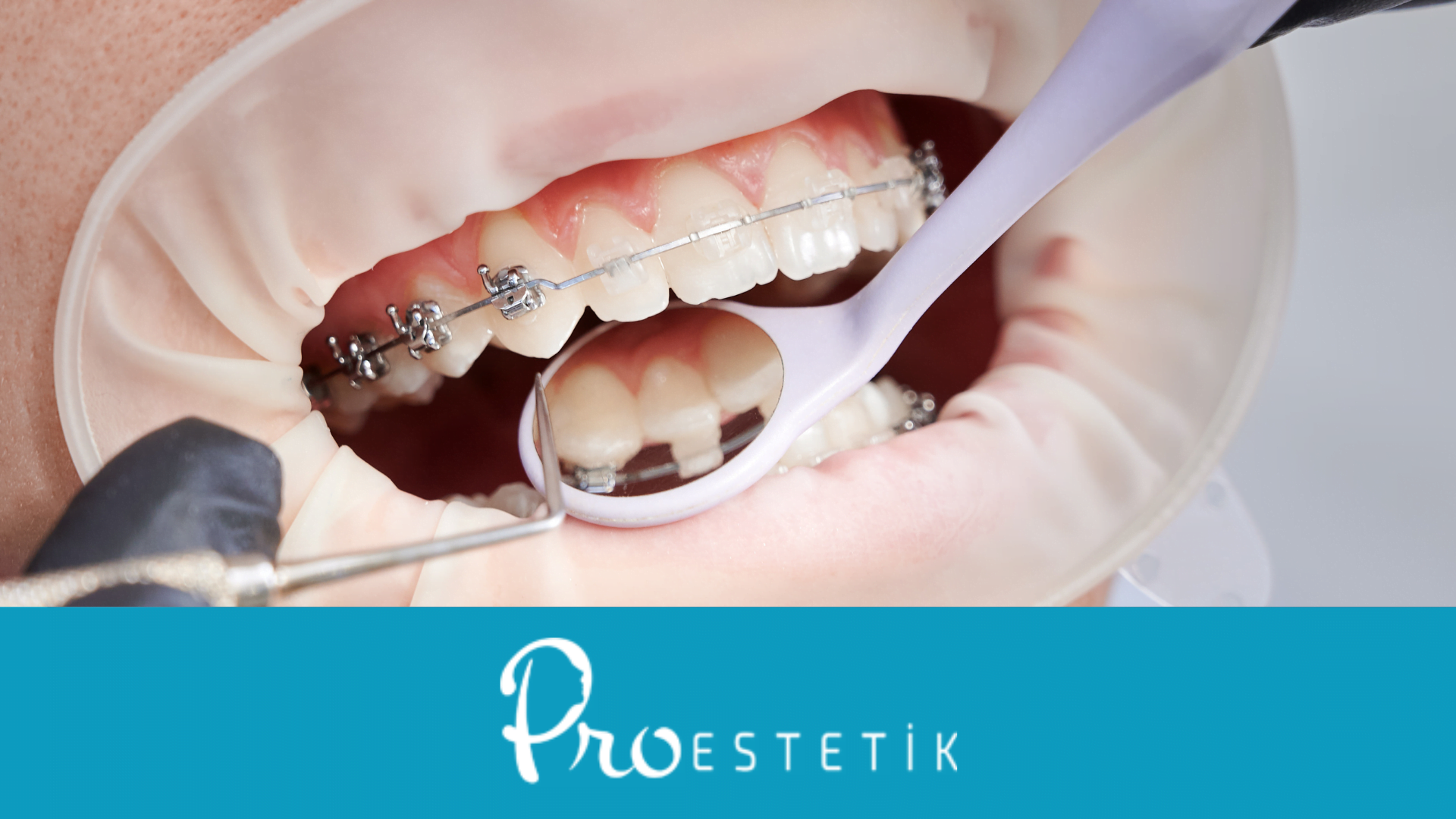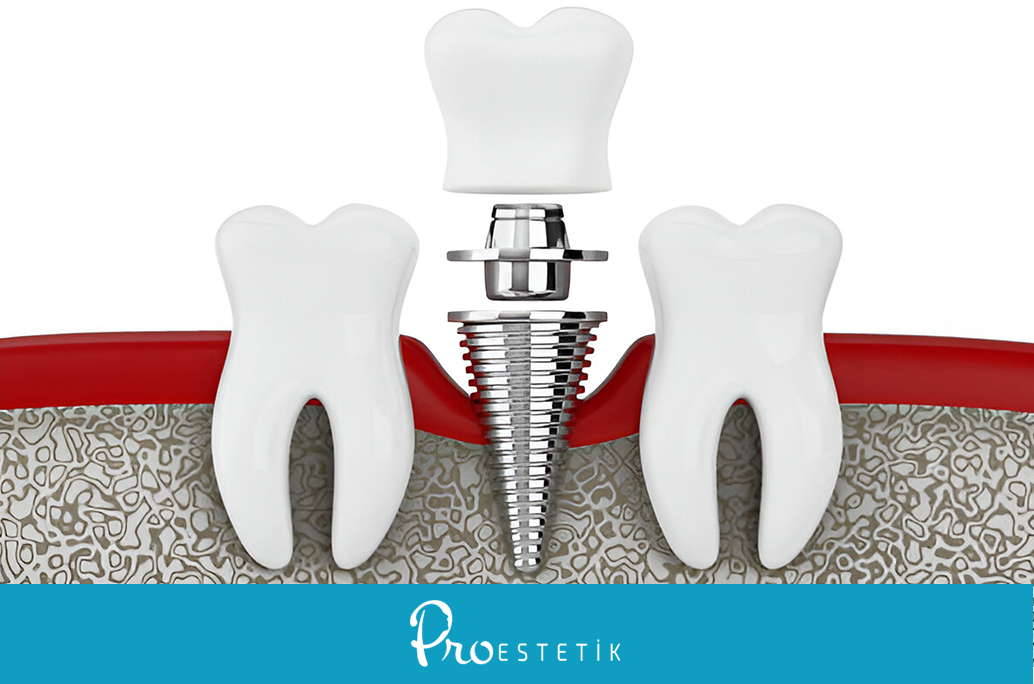Gum bleeding is known as the beginning of gum diseases. Gum bleeding is quite common among individuals. Why does gum bleeding occur? We have answered this question for you. The causes of gum bleeding can vary from person to person.
How to stop gum bleeding? How to get rid of it? We have provided all the information on this topic. If you experience gum bleeding for no apparent reason, it is beneficial to look into this matter.
Although gum bleeding is often ignored in daily life, when noticed, it is best to consult a dentist. If the gum bleeding problem, which starts mildly, is not addressed, the discomfort will progress. Untreated gum bleeding can lead to deterioration of oral health.
What is Gum Bleeding?
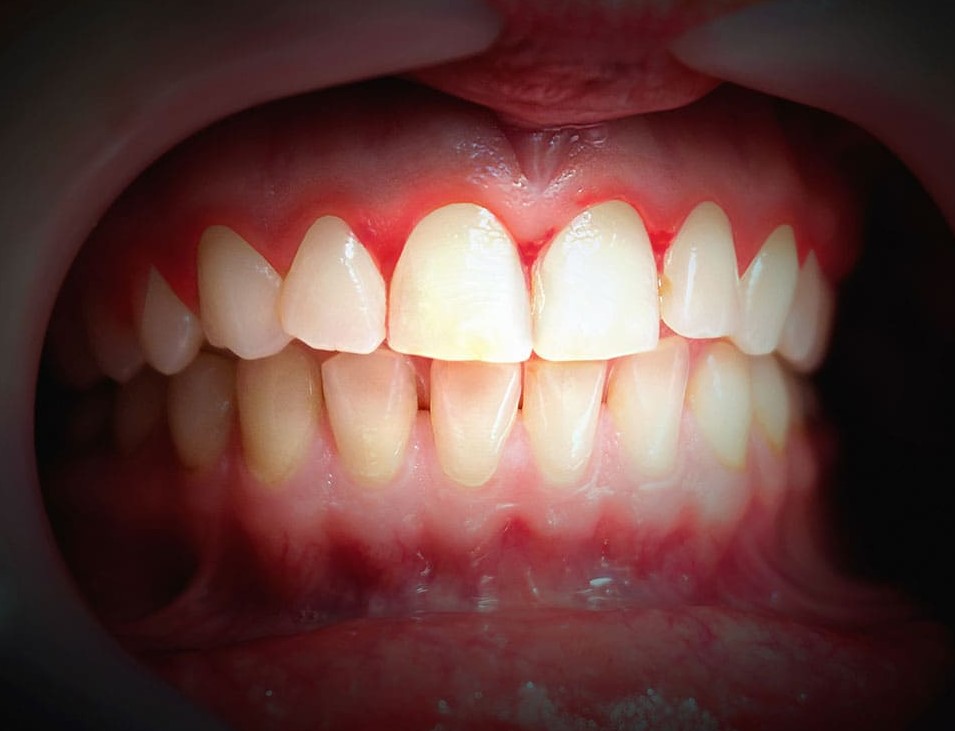
Gum bleeding occurs due to the accumulation of excessive plaque between the teeth, resulting in damage to the gums. Inflammation occurs in the gums due to plaque buildup. If these inflammations are not treated, they will lead to bleeding in the gums and a gradual deterioration of the individual's oral health.
The causes of gum bleeding can vary from person to person. Therefore, a medical examination is necessary. With the help of a specialist, a diagnosis can be made, and treatment procedures can be initiated.
Gum bleeding, if not taken seriously, can lead to jawbone disease as it progresses. This situation poses a serious threat to the individual's health. Therefore, when gum bleeding is noticed, it is essential to consult a dentist and start the treatment process.
Causes of Gum Bleeding:

Gums can bleed for various reasons, and in most cases, it is not possible to stop this bleeding on your own. Specialist support is essential at this point, and it is also crucial to know the causes of gum bleeding well. Many people research why gums bleed. Here are the possible reasons for gum bleeding:
- Gum Diseases
- Incorrect Toothbrushing Habits
- Incorrect Use of Dental Floss
- Hormonal Changes
- Medical Conditions
- Side Effects of Medications
- Dental Prosthetics
If the answer to why gum bleeding occurs lies in one of these options, treatment is necessary. Therefore, generally, gum bleeding treatment is carried out under the guidance of a dental professional.
Now, let's answer the question of why gum bleeding occurs in detail...
Why Does Gum Bleeding Occur?

Gum bleeding, which significantly affects an individual's life, can have many reasons. It would not be correct to reduce these reasons only to gum problems. Common causes of gum bleeding among individuals can be listed as follows:
- Incorrect oral care and inflammation: If you do not maintain your oral and dental care correctly and regularly, your gums will begin to suffer damage over time. Due to this damage, inflammations occur in the gums, leading to constant bleeding.
- Medication usage: Some medications regularly used can cause gum bleeding as a side effect. Especially when using blood thinners, extra care should be taken in oral and dental care, as blood thinners enhance blood clotting, making bleeding easier.
- Trauma: Eating hard foods can damage your gums. As a result, bleeding may occur in your gums.
- Pregnancy: Gum bleeding is frequently encountered during pregnancy. The sudden change in hormones during pregnancy can cause gum sensitivity.
- Leukemia: How does gum bleeding occur in leukemia? Platelets are cells that help stop bleeding. In leukemia treatments, the number of platelets in the blood decreases. This makes it easier for bleeding to occur.
- Stress: Stress significantly affects the human body more than expected. One of the discomforts caused by stress is weakening the immune system, leading to bleeding in the gums. Nighttime gum bleeding can also occur when clenching your teeth due to stress during sleep.
- Chronic diseases: Chronic illnesses such as diabetes or lung diseases can cause damage to the tissues in the body, leading to gum bleeding.
- Smoking: Smoking damages the gums due to harmful chemicals in its content, leading to bleeding.
- Vitamin deficiency: Humans need vitamin C and K for gum health. In cases where these vitamins are not taken in sufficient amounts, the gums weaken and bleed.
These are the reasons for gum bleeding. However, bleeding can also occur due to different reasons. A specialist must investigate the underlying causes of this problem.
Symptoms of Gum Bleeding:

After examining the causes of gum bleeding, let's look at the symptoms. Gum bleeding has various symptoms. Being aware of these symptoms is crucial for starting early treatment. Let's review them:
- Seeing blood in the mouth during tooth brushing.
- Swelling or redness of the gums.
- Unpleasant breath.
- Gum recession, resulting in gaps between teeth.
- Loosening of teeth.
- Intense sensitivity in teeth, difficulty in biting and chewing.
- Pressure from dentures causing gum bleeding.
How to Stop Gum Bleeding?
Now that we have learned the causes of gum bleeding, how can we stop it? Here are the details:
There are many steps that can be taken for the treatment of gum bleeding. This way, potential bleeding can be prevented, and existing bleeding that bothers the patient can be stopped. Let's see what is good for gum bleeding:
- Ensuring oral and dental health regularly is one of the most important factors in preventing gum bleeding. Every individual should brush their teeth regularly twice a day and use dental floss once a day.
- Regular check-ups with your dentist can help prevent gum bleeding.
- Antiseptic mouthwashes play a significant role in preventing infections in the mouth. Thus, gum bleeding can be prevented before it starts.
- Preventing gum bleeding can be achieved by maintaining a healthy diet, getting enough vitamin C and K, and avoiding hard or acidic foods that can damage the gums.
- If you have sensitive gums, you can use soft-bristled toothbrushes to brush your teeth more comfortably.
- Medication treatment for gum bleeding is also applied. Bleeding can be stopped with mouthwash, pain relievers, or special toothpaste recommended by your doctor.
WARNING! For accurate information on the causes of gum bleeding, be sure to consult your dentist.
Gum Bleeding Does Not Stop: What Should I Do?
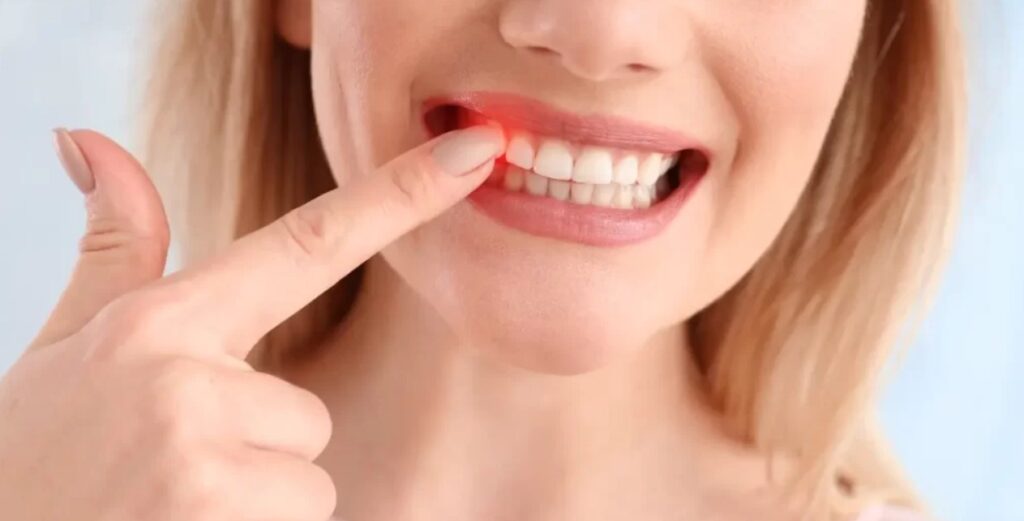
We have learned the causes of gum bleeding and shared tips on how to stop it. However, individuals may still ask what to do if gum bleeding does not stop. If gum bleeding persists, the following practices can be alternative solutions:
- Proper Toothbrushing
- Correct Use of Dental Floss
- Rinsing and Gargling
- Regular Oral and Dental Care
- Healthy Eating
These procedures are general practices. However, a personalized treatment program will be prepared with the help of a dental professional.
How Does Gum Bleeding Occur in Leukemia?
Gum bleeding can occur differently in the presence of leukemia. At this point, it is necessary to answer how gum bleeding occurs in leukemia:
- Decrease in platelet count during leukemia can cause gum bleeding. This decrease weakens the blood clotting ability, leading to easy bleeding.
- Leukemia weakens the immune system, generally causing gum bleeding. The immune system is a crucial factor among the causes of gum bleeding.
- Medications used in leukemia treatment can affect the oral mucosa, leading to gum problems.
Gum Bleeding for No Apparent Reason:
We have learned the causes of gum bleeding. However, in some cases, gum bleeding may occur for no apparent reason. So, why does gum bleeding occur for no apparent reason? Here are the details:
- All the answers given to the question of why gum bleeding occurs are also valid here. That is, each component among the causes can cause gum bleeding for no apparent reason.
- Hormonal structure, vitamin deficiency, and other medical conditions can contribute to gum bleeding for no apparent reason.
- Especially, a deficiency of vitamin C can make the gums more prone to bleeding.
- Chronic stress can also cause gum bleeding for no apparent reason.
What is Good for Gum Bleeding?
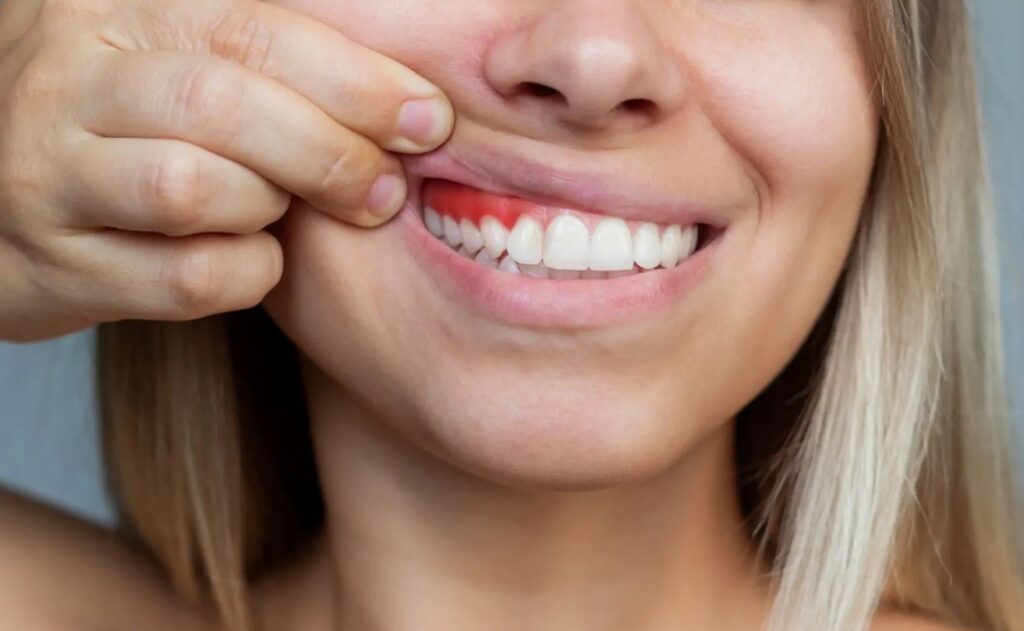
Practices that are good for gum bleeding include:
- Proper toothbrushing will often help with bleeding.
- Using dental floss correctly and in the right way can stop gum bleeding.
- Gum massage can also help with bleeding.
- Rinsing with saltwater is important for hygiene and is good for bleeding.
- Avoiding tobacco and alcohol consumption is crucial to prevent and stop bleeding.
- Eliminating vitamin deficiency through healthy eating will also be effective.
Now you know what is good for gum bleeding! Finally, let's talk about the treatment stage...
Specialist Support is Essential for Gum Bleeding Treatment
The causes of gum bleeding are difficult for the individual to understand by themselves. Therefore, specialist support may be necessary. With the result of a specialist dental examination, the causes are identified, and the correct treatment program is applied. Gum bleeding treatment generally includes the following stages:
- Examination and Evaluation
- Professional Cleaning Procedures
- Gum Surgery
- Gum Care and Education
- Treatment of Underlying Health Problems

 English
English Turkish
Turkish Deutsch
Deutsch العربية
العربية![[:en]Causes of Gum Bleeding | Why Does it Occur? How to Stop It?[:tr]Diş Eti Kanaması Nedenleri | Neden Olur? Nasıl Geçer?[:de]Zahnfleischbluten Ursachen | Warum tritt es auf? Wie kann man es stoppen?[:ar]أسباب نزيف اللثة | لماذا يحدث؟ كيفية التوقف عنه؟[:] diş eti kanaması](https://proestetik.com.tr/wp-content/uploads/2023/03/dis-eti-kanamasi.jpg)







